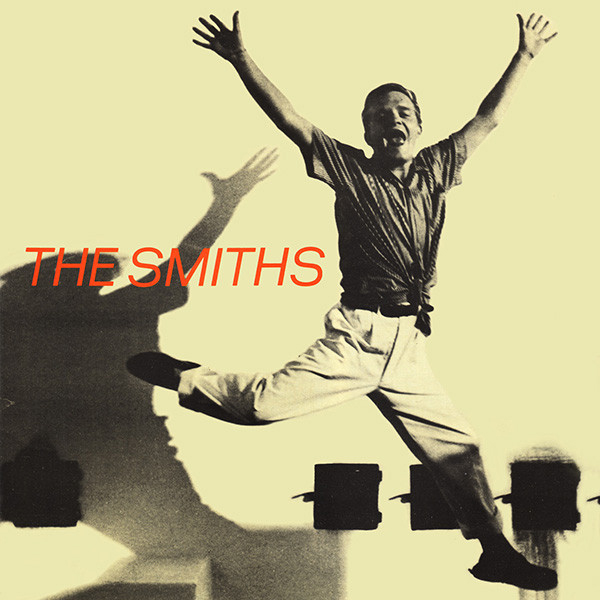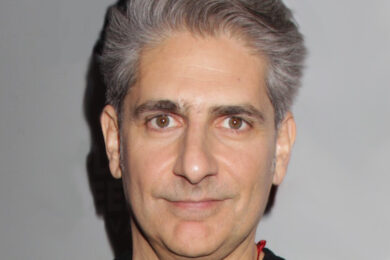9. The SmithsRubber Ring

That’s the first song I heard of theirs. It was, I guess, 1985 and I was at a friend’s apartment in New York and he had the big 12", ‘The Boy With The Thorn In His Side’, but he played the B-side first, which was ‘Rubber Ring’ and it ran right into ‘Asleep’. I had never heard of The Smiths, and it was one of those experiences where that was exactly what I needed to hear at that moment in my life. Like, there couldn’t have been another song that would have been programmed to my brain waves better. I didn’t know what it was, but it just blew my mind.
The sound, the guitar, and Morrissey’s voice and his lyrics, then it went into ‘Asleep’, which really shocked and surprised me. That just began my love for the band. Shortly after that, they released The Queen Is Dead. I started just getting all their records, their first album, and Meat Is Murder.
Then they came to New York in ’86 on the The Queen Is Dead tour. It was an outdoor concert. They used to have concerts on the West Side Pier around 42nd Street, 50th Street, and that was a really big deal, seeing them live. It was their last tour, and I’ll never forget it. I mean, I’ve seen Morrissey many times and loved it every time, but there was something very special about seeing seeing The Smiths play together.
This song is so reflective of this, today, what we’re doing: "Don’t forget the songs that made you cry, and the songs that saved your life/ Yes, you’re older now and you’re a clever swine, but they were the only ones who ever stood by you…" In many ways that’s very true and I think Morrissey’s been very loyal to that, in reuniting the New York Dolls, and he wrote a book about them before he was even in a band. Having that kind of allegiance and loyalty and respect towards the artists that really were there for you. Especially because a lot of people really get into music in adolescence, which is always such a difficult time. People try to figure out what it means to be an adult, and all those challenges of feeling awkward and feeling inadequate, and music is often the one friend you have. The most loyal friend you have. ‘Rubber Ring’ really expresses that. It’s got something in common with the dynamic in the Carpenters and Velvet Underground songs, and then you go to ‘Paint A Vulgar Picture’, which is another I should have had on this list, but I only wanted to do one for each artist.
What have you made of his political stance in recent years?
Well, I know several of the guys in his band, especially Gustavo Manzur, his keyboardist who writes some of the songs now with Morrissey. I’ve never met Morrissey, I don’t know him, but they’re some of the greatest guys and smartest guys and lovely guys, Gustavo especially, and they told me Morrissey is not a racist. First of all, he’s just too smart to be a racist. Racism comes with ignorance. I think a lot of what he says gets taken out of context. A lot of what he says is about hypocrisy, and religious hypocrisy of talking about kindness, everything being sacred, and then slaughtering animals, and that’s always been a cause of his. The party that he was affiliating himself with in England (For Britain), I don’t know a lot about it, but seems there’s some dodgy stuff there, although I don’t know the extent or the details. I would love to hear more just from him, because he definitely is a contrarian and has always been, but he hates Donald Trump. He’s not Anti-Semitic; he wrote a song about Israel. I can’t imagine him being a racist. But there’s been a lot of reaction from people, that’s for sure. I’d love to have a conversation with him some day, just to see, but I really trust his bandmates, because they’re great human beings and I think they understand where he’s coming from. I think there’s more to the story than what’s been headlined and put into bullet points and taken out of context. I’m withholding my judgement until there’s more evidence.
But The Smiths, if you were young, as I was at the age when I heard them, felt very important. I always felt like an outsider, feeling that kind of alienation, in a place where anything like that is considered different, that’s often a difficult path. I couldn’t wait to get away from the place I grew up in to be in the city and to be around artists. The Smiths were a real beacon of hope during those times. I just loved the music, and I still do.


